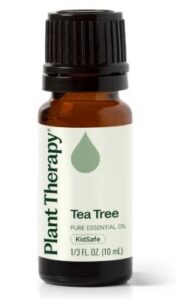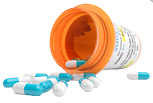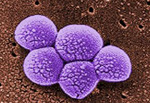“Biofilms” linked to recurring infections
The intelligence and ingenuity of bacteria never cease to amaze me. Bacteria are especially good at hiding in your body and evading the treatments used to kill them. That’s why Staph and MRSA superbug infections can be so hard to treat. It’s also a key reason why Staph and MRSA infections can recur over and over.
Continue reading




 I heard from a new mother from Wisconsin named Kylee who shared her MRSA experience with me.
I heard from a new mother from Wisconsin named Kylee who shared her MRSA experience with me.



